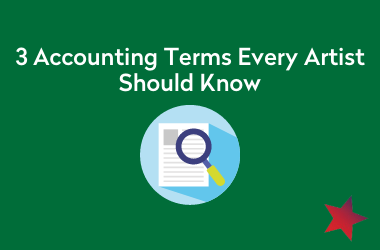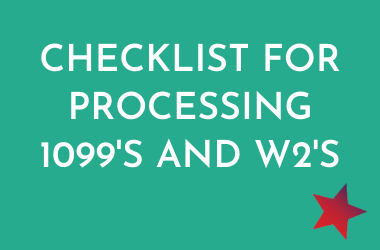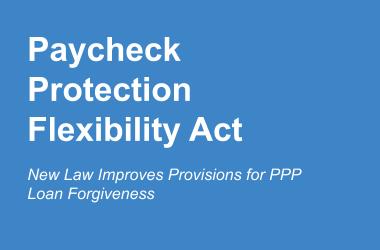Help! I need new Board Members!
When is it time to recruit new board members?
We have all been there: You look around your board meeting and think, “I love these people, but we are stuck. They are just not helping to advance the work of our organization!” Maybe they love the mission but don’t have the resources to support it financially. Or maybe they are shy about introducing you to their friends and associates. Or they don’t reflect the diversity of your audience or constituents? Or they totally panic when you start talking about fundraising. Or maybe they have no idea what you actually do. Or, they are happy to attend meetings but shy away from doing any committee work. Or, and this is the one that really gets me, they feel they serve on the board only for their expertise, so don’t need to make a financial contribution. I have seen all the above, served on boards with all the above, and worked at organizations with all the above. Having a board that understands and supports the mission of your organization is crucial to having a fully functioning and successful organization.
Let’s get started on a few questions to ask yourself before expanding your board:
1. Why do you feel you need new board members?
Be really honest with yourself about why you feel you need to expand your board. Having a bigger board is not always a good thing, but it can be a terrific thing if you can identify what you need. What exactly is your board missing? What are you as a leader not getting from your board and what is your organization not getting? Is it funding? Is it expertise? Are you expanding to new program areas or new geographic locations? Are you communicating with them effectively? Is the problem with the board members or with the way you are engaging with them? Identifying your needs will help you find your solution.
2. What attributes or skills are present with your current board and what is missing?
This is a follow up to question number one. Really dig in. Do you need new members who are willing to fundraise? Or give pro-bono legal advice? Or financial expertise? Or marketing know-how? Or industry knowledge and connections? Or financial resources to make substantial annual contributions? Or board governance proficiency? Or incredible passion for the mission so they can become top-notch ambassadors? A highly functioning board has members who possess all of these skills, so think strategically when you start recruiting. What you don’t need is another warm body who brings nothing to the table.
3. Where are you going to look for new members?
This is a tough one because every organization is looking for good board members. Start out by asking your current board members if they know other people who might be a good fit (keeping in mind the above-mentioned attributes and skills) but be sure to search more broadly than that. You want to make sure that your board is as diverse as possible in every sense. And make sure that your board represents your constituents. In other words, don’t just fill your board with similar types of people. Diversity of income, race, life experiences, ability, occupation, gender, age all contribute to creating a board with the knowledge and experience you need to support your organization and your community. You should also ask your staff to recommend people who might be good for the board. In addition, there are resources like the Board Effect and Board Source with great ideas for board recruitment.
Your current funders and donors are also a terrific source for new board members. Get the word out that you are looking for, and share with your donors what expertise you are looking to find. You never know, they might be interested or they might know someone who would be perfect. You should also post it on social media and your website. Many companies and law firms also encourage their employees to serve on boards, so get creative and reach out to ask if companies have that policy then follow up and get to work!
4. How will you engage the new members once they join?
This is very important to think about before you recruit new board members: Realize that you need to put effort into engaging and retaining new board members. Are you willing to make that effort? Is your current board willing to make that effort? The last thing you want is to get a new, talented, excited board member and then have them get disillusioned because they are not engaged. Make them excited about their service and let them know how much they are appreciated.
5. Who are you going to ask to help you recruit new members?
This is key. It is not just up to you (the CEO, Executive Director, Artistic Director, Senior Staff) to recruit new board members. Enlist your current board and create a board recruitment committee. This has several benefits. Not only are you sharing the workload and the interview process, but you are also bringing your current board members closer to the organization by engaging them in meaningful and fulfilling work. Nothing feels better than bringing in an excellent, new board member. Okay, maybe landing a huge, transformational financial contribution might feel better!
When you feel you have contemplated and answered these questions, you are ready to begin recruiting.
NEXTSTEPS GUEST WRITER: MARY HEDAHL | 1.23.21
Mary Hedahl is a development professional who has fundraised for the arts, social justice, civil liberties, human rights, and the environment for over twenty years.
Related Blog Posts
3 Accounting Terms Every Artist Should Know
3 Accounting Terms Every Artist Should Know These terms are essential for artist accounting Chart of Accounts It is important that your organization's money moves are informed and precise. In coordination with your Budget and Financial Reports, a consistent Chart of...
5 Questions to Ask Your Auditor
5 Questions to Ask Your Auditor What are the key questions to ask an independent auditor? Nonprofits are required to obtain an audit or review each year, depending on their budget size. The first step in any nonprofit audit or review is contacting an...
New York City Fiscal Sponsors
New York City Fiscal SponsorsList of Fiscal Sponsors in New York City Organizations that act as fiscal sponsors provide a vital service in the cultivation of new projects and entities. Any project or entity can be sponsored by a nonprofit fiscal sponsor if both...
Checklist for Processing 1099’s and W2s
Checklist for Processing 1099’s and W2’sEnd of Year Payroll Tax Forms: W2, 1099 Some of the most important payroll tax forms -- W2 and 1099 forms -- must be mailed out to your employees and contractors shortly after the calendar year ends. Any contractors who were...
5 Ways That You Can Benefit From Fiscal Sponsorship
5 Ways That You Can Benefit From Fiscal SponsorshipFiscal Sponsorship Has Both Financial and Administrative Benefits Fiscal Sponsorship has many financial and administrative benefits. Fiscal sponsorship refers to the practice of non-profit organizations...
Paycheck Protection Flexibility Act Adds Key Features to Existing Payroll Protection Program (PPP)
Paycheck Protection Flexibility Act Adds Key Features to Existing Payroll Protection Program (PPP) New Law Improves Provisions for PPP Loan Forgiveness PPP Applications Accepted until June 30 The Paycheck Protection Program (PPP), provides short term loans to small...
Pentacle’s nextSteps is supported, in part, by public funds from the National Endowment for the Arts, the New York State Council on the Arts with the support of Governor Andrew M. Cuomo and the New York State Legislature, and the New York City Department of Cultural Affairs in partnership with the City Council. Pentacle receives private support for nextSteps from the Booth Ferris Foundation, the Howard Gilman Foundation, the Rockefeller Brothers Fund, and the New York Community Trust.







